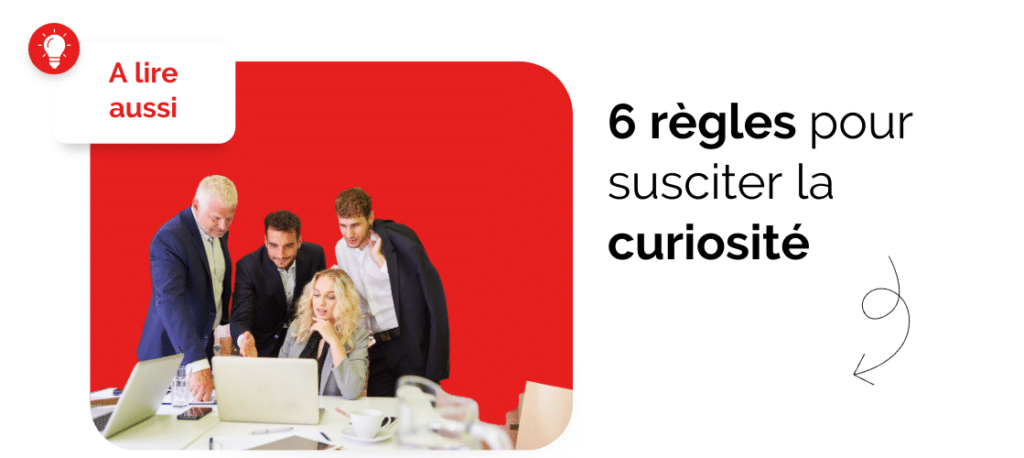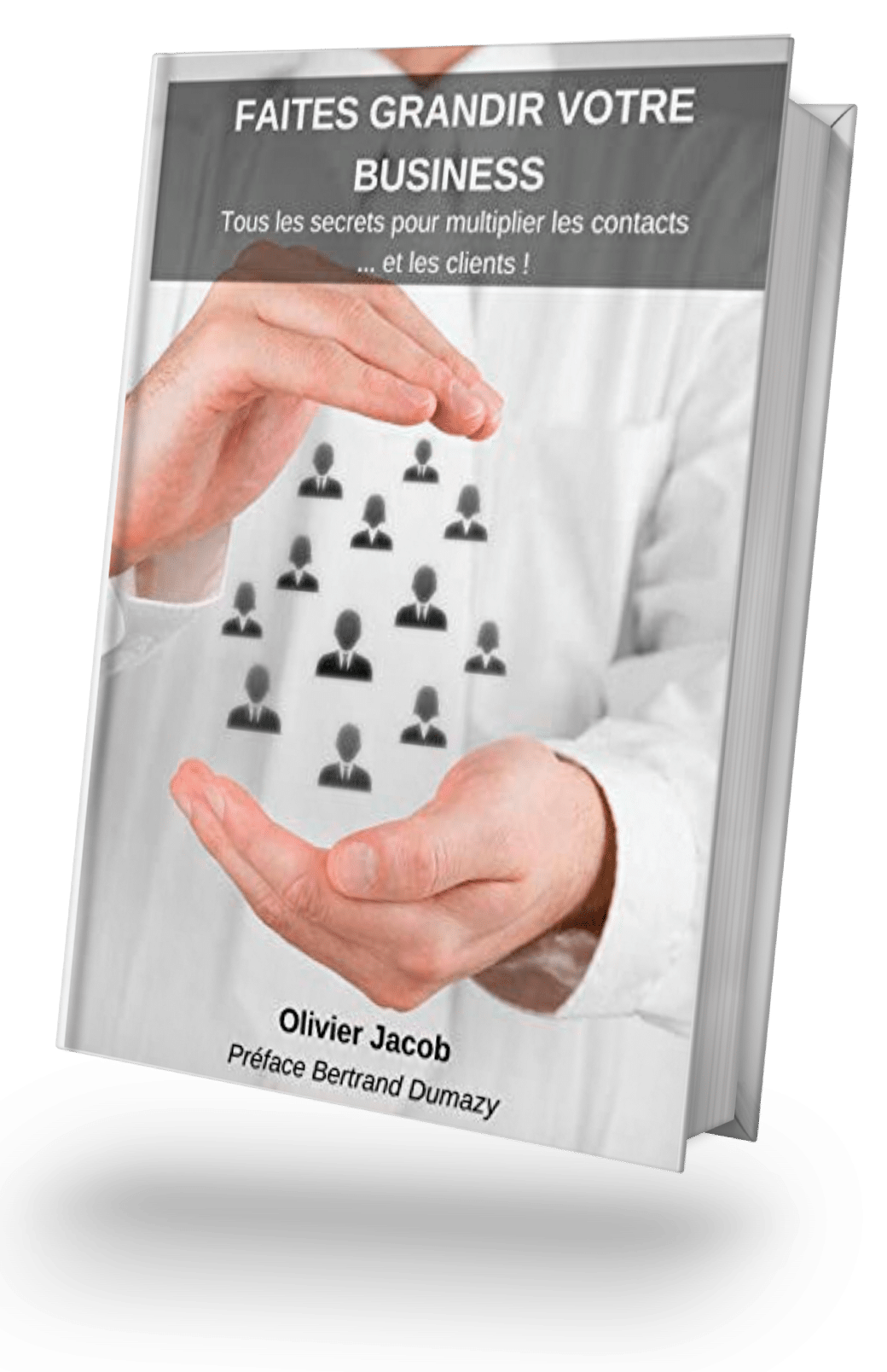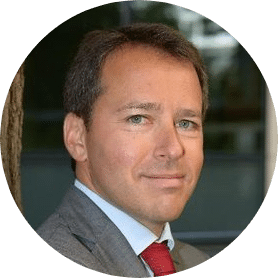Par Olivier Jacob et Andrew Sobel
Le grand essayiste Ralph Waldo Emerson a écrit un jour : « L’ancêtre de chaque action est une pensée.” De toute évidence, si nos pensées ne sont pas claires et organisées, nos actions ne le seront pas non plus. Poussant encore plus loin l’idée d’Emerson, la maîtrise n’est pas seulement une fonction d’apprentissage de certains outils et de techniques, c’est aussi apprendre à réfléchir correctement votre métier.
J’ai étudié et analysé des milliers de professionnels en contact avec les clients très performants qui surpassent constamment leurs pairs (responsables de compte, chargés de relations, vendeurs et autres) et j’ai observé les compétences et les stratégies spécifiques qu’ils utilisent pour devenir des conseillers de confiance auprès de leurs clients. Mais il y a plus à leur succès que les types de questions spécifiques qu’ils posent ou leur compétence d’écoute. Ils sont également plus performants parce qu’ils pensent différemment de leurs pairs, qui sont eux, moins performants.
C’est une grande partie faisant la différence entre le bon musicien et le grand musicien. Je joue de la guitare classique, et même si je pouvais parfaitement imiter certaines des techniques de jeu d’Andres Segovia, je ne jouerai jamais comme lui parce que je ne suis pas capable de penser et d’aborder un morceau de musique comme il le fait. Un maître performeur a également des habitudes de pensée différentes et une meilleure connaissance de la musique que moi. Il ne s’agit pas seulement de leur technique, mais aussi de leur façon de penser.
Voici huit façon de penser que j’ai constamment observées chez les grands conseillers de confiance :
1. Ils définissent leur rôle différemment de leurs pairs
Ceux qui font de grandes choses considèrent que leur mission est d’aider leurs clients à atteindre leurs objectifs les plus importants, point final. D’autres « experts à louer », en revanche, se considèrent comme chargés de résoudre un problème spécifique ou un ensemble de problèmes que les clients peuvent rencontrer.
En définissant votre rôle comme l’améliorateur des affaires de votre client, de toutes les manières possibles, vous comprenez et percevez les choses différemment. Vous définissez le marché disponible pour vos services comme étant vaste, et non étroit ou circonscrit. Plutôt que de fuir une discussion où vous sentez que vous n’êtes pas « l’expert », vous vous lancez avec quelques questions bien pensées. Vous pouvez alors faire appel à un collègue qui possède l’expertise nécessaire ou, en fin de compte, vous pouvez dire au client que ce n’est pas dans vos compétences. Mais dans tous les cas, vous vous êtes positionné très différemment de vos concurrents.
2. Ils se concentrent sur l’abondance – sur les possibilités – et non sur la rareté
C’est une différence clé, que j’ai observée et écrite il y a environ 15 ans dans Clients for Life. Voici ce que je veux dire : j’ai eu une fois l’idée de développer un séminaire sur la manière dont les Beatles travaillaient en équipe et innovaient dans leur musique. J’ai aussi commencé à écrire un article sur le sujet. Plusieurs personnes bien informées m’ont dit que c’était une idée stupide et ont essayé de me décourager. Ils disaient que le business de la musique était sale, que les musiciens consommaient beaucoup de drogue, et d’ailleurs, qu’est-ce que les hommes d’affaires pouvaient apprendre d’un groupe qui s’était séparé il y a 40 ans ? Cependant Je l’ai poursuivi et c’est devenu (encore aujourd’hui) l’un de mes ateliers les plus populaires. Aussi, l’article que j’ai écrit pour Strategy+business est devenu mon article le plus largement réimprimé et téléchargé, avec une couverture dans le New York Times et d’autres médias importants dans le monde entier.
Qui voulez-vous comme conseiller : quelqu’un qui est un opposant chronique ou quelqu’un qui vous encourage (sans bien sûr vous faire tomber d’un précipice…) ?
Les professionnels avec une mentalité d’abondance recherchent des opportunités, de la croissance et de l’expansion. Ils sont positifs et optimistes dans leur comportement. Ils encouragent les autres. Ils estiment qu’il y a suffisamment de récompenses pour tout le monde – ils savent qu’une «marée montante» soulève tous les bateaux.
Lorsque vous avez une mentalité de rareté, vous êtes principalement préoccupé par ce qui pourrait mal tourner et ce qui ne fonctionnera pas – vous avez une aversion pour le risque. Vous vous concentrez sur les inconvénients des nouvelles propositions plutôt que sur les récompenses potentielles. Vous pensez que la vie est un jeu à somme nulle, avec un nombre limité d’opportunités pour en faire le tour. Vous hésitez à faire des investissements qui ne rapportent pas immédiatement.
3. Ils combinent une perspective à long terme avec un grand sens de l’urgence à court terme
C’est une combinaison fascinante et puissante de comportements opposés. Les conseillers à la clientèle qui ont vraiment réussi et que j’ai étudiés adoptent tous une perspective à long terme. Leur horizon temporel pour nouer des relations est long, (du fait qu’ils réfléchissent en terme de carrière de 20 ou 30 ans, si le client n’est pas prêt à faire des affaires aujourd’hui, il ne s’inquiète pas) donc plutôt que de s’énerver, il continue de rester en contact et construit lentement une relation au fil du temps basée sur une valeur ajoutée continue.
En même temps, ils ont un sens aigu de l’urgence et une volonté de gagner lorsqu’une opportunité se présente. Ils sont tous sur un accord potentiel, 24 heures sur 24, 7 jours sur 7, et ne s’arrêteront pas tant qu’ils n’auront pas fait de leur mieux et épuisé toutes les stratégies possibles pour gagner. Ils sont implacables.
En se concentrant simultanément sur le court et le long terme, les grands faiseurs de pluie remplissent leurs objectifs aujourd’hui et jettent également les bases d’un futur solide à l’avance.
4. Ils s’alignent sur les plus hauts objectifs du client, plutôt que d’accepter les missions à petite échelle
Il y a des années, lorsque j’étais PDG national chez Gemini Consulting, je me souviens avoir quitté un appel commercial avec notre responsable mondial du développement commercial, Jim Duffy. Jim m’a demandé ce que je pensais de l’opportunité. “Je pense qu’il y a un beau projet de stratégie à faire pour environ 300 000 $”, ai-je dit à Jim. “C’est drôle”, répondit-il, je n’ai pas du tout entendu ça. J’ai entendu dire qu’ils devaient transformer l’ensemble de leur modèle commercial, et c’est un effort sur plusieurs années engageant plusieurs millions de dollars.” Et finalement, il s’est avéré qu’il avait raison ! Parce que mon objectif à l’époque était le conseil en stratégie et en organisation. Je n’ai « entendu » que cet objectif du client. Je me suis concentré sur le besoin décrit précisément par le client, et non sur ses objectifs commerciaux plus larges. Mon collègue, d’autre part, s’est concentré sur l’ordre du jour de niveau supérieur. En conséquence, il vendait de très grands programmes à fort impact. En modifiant ma façon de définir (ou de recadrer) les problèmes de mes clients, j’ai plus que doublé mes propres ventes au cours des deux années suivantes.

5. Ils croient vraiment, profondément que le client a besoin d’eux
Les grands faiseurs de pluie croient qu’ils ont une solution incroyablement précieuse à offrir aux clients, et que les clients en ont vraiment besoin. Ils n’approchent pas les prospects avec un état d’esprit défensif, sceptique ou anxieux, pensant que, même avant de franchir le pas de la porte, le client ne voudra probablement pas ou n’aura pas besoin de ce qu’il peut fournir. Ils estiment que c’est un crime lorsque les clients n’achètent pas chez eux. Ils sont véritablement choqués et attristés lorsque quelqu’un achète l’offre inférieure d’un concurrent.
Voici le point : cette attitude les motive à être persévérants et à ne pas abandonner, cela favorise la confiance et suscite un enthousiasme contagieux. N’oubliez pas que si vous n’avez pas une conviction inébranlable, voire exubérante, en ce que vous pouvez faire pour les clients, pourquoi devraient-ils croire que vous pouvez les aider ?
6. Ils voient tout l’échiquier, pas seulement quelques pièces
L’ancien secrétaire d’État américain Henry Kissinger est un excellent exemple de quelqu’un capable de visualiser et de gérer plusieurs parties prenantes. (Laissons temporairement de côté sa politique ou le fait que vous approuviez ou non Kissinger!). Il a conceptualisé un rapport de force triangulaire entre la Chine, l’Union soviétique et les États-Unis, ce qui était évident avec le recul mais presque impensable à l’époque. D’autres dirigeants se sont concentrés sur les relations individuelles des États-Unis avec chaque pays, tandis que Kissinger a pensé à l’ensemble de l’échiquier. En 1968, la Russie était la principale menace pour les États-Unis, tandis que la Chine était un paria, un paria politique. Kissinger a estimé qu’un rapprochement avec la Chine ferait pression sur l’Union soviétique pour qu’elle se rapproche des États-Unis, et forcerait par la suite les trois nations à établir une relation plus stable avec des intérêts nationaux plus étroitement alignés. La Russie et la Chine, croyait-il, chercheraient à établir un lien commun avec les États-Unis. Cette stratégie n’était ni intuitive ni évidente à l’époque ; en fait, il y avait une grande résistance au Département d’État et dans d’autres milieux à toute rencontre avec les Chinois.
De même, les faiseurs de pluie les plus performants pensent à établir des relations avec plusieurs parties prenantes dans l’ensemble de l’organisation, et pas seulement à se connecter avec un cadre clé. En termes d’échecs, ils seront aussi concernés par les pions, les cavaliers et les fous que par les tours, la reine et le roi.

7. Ils intègrent une compréhension du rationnel, de l’émotionnel et du politique
La plupart des professionnels croient que les clients prendront une décision basée sur un examen rigoureux des faits et une évaluation de qui a le meilleur produit ou service. Les grands faiseurs de pluie savent que rien ne pourrait être plus éloigné de la vérité. Les clients prennent des décisions basées sur un mélange d’analyses, leurs propres besoins, de leurs perceptions émotionnelles, et la dynamique politique de leur organisation. “Les faits racontent, les émotions vendent.” Votre solution peut sembler meilleure sur papier, par exemple, mais un client peut ne pas se sentir aussi à l’aise de travailler avec vous et votre équipe – ou, il perçoit certains facteurs de risque en vous utilisant qui font pencher la balance en faveur de vos concurrents.
8. Ils pensent toujours à leurs clients
Les conseillers les plus performants que j’ai étudiés sont presque obsessionnellement axés sur le client. Ils pensent tout le temps à leurs clients et se demandent toujours ce qu’ils peuvent faire de plus pour les aider. Lorsqu’ils lisent, apprennent quelque chose de nouveau ou rencontrent quelqu’un, ils le filtrent toujours à travers le prisme des besoins et des intérêts de leurs clients. Cela conduit à un flux constant d’idées, de présentations et de petites communications qui les maintiennent en contact régulier.
Il est essentiel d’acquérir de nouvelles compétences, outils et techniques. Mais ne vous arrêtez pas là. En adoptant ces habitudes de pensée, vous pouvez transformer radicalement votre succès auprès de vos clients.
À propos des auteurs
Andrew Sobel est la principale autorité sur les stratégies et les compétences nécessaires pour développer des clients pour la vie. Il est l’auteur le plus publié au monde sur ce sujet ayant écrit huit livres à succès sur les relations clients, dont les best-sellers internationaux Clients pour la vie et Questions de pouvoir. Plus de 100 entreprises de premier plan, telles que PwC, Citibank, UBS, Booz Allen Hamilton, Cognizant, Deloitte et bien d’autres se sont basées sur son livre Clients pour la vie pour développer compétences de conseiller de confiance et augmenter les revenus de leurs clients.
Olivier Jacob a des dizaines d’années d’expertise en tant que coaching, formation, et animation de conférences sur les thèmes du management et de la vente. Auteur du livre “Faites grandir votre business” et passionné par l’efficacité personnelle, la stratégie, le commercial, l’engagement et les nouvelles technologies, il a créé Inéa Conseil en 2008 pour aider les entreprises à vendre plus et mieux, et les managers à mieux mobiliser leurs collaborateurs.





